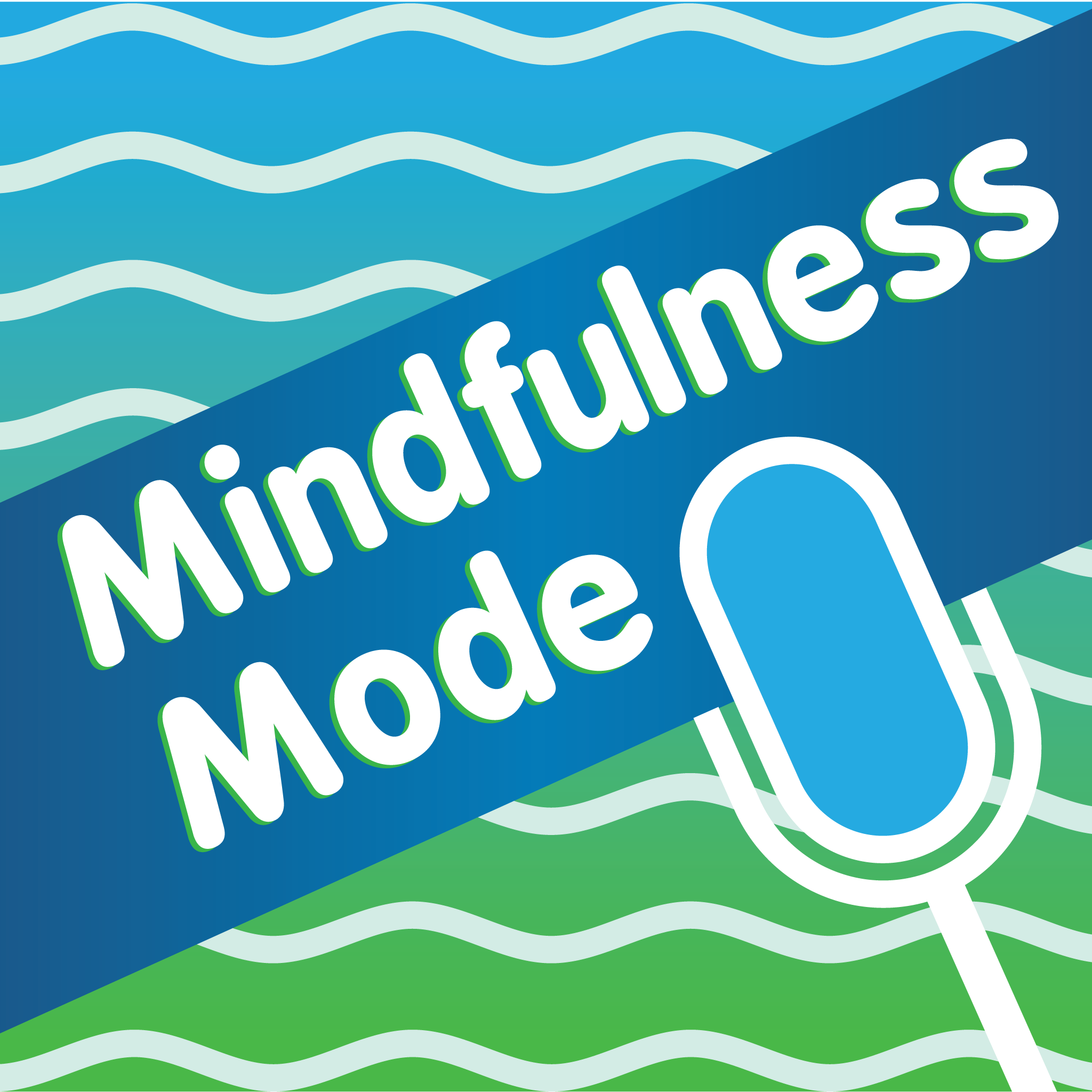Episodes
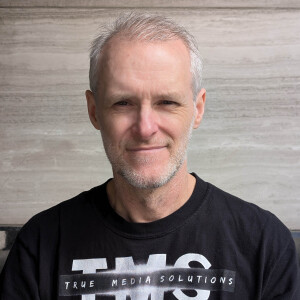
Wednesday Apr 23, 2025
Podcasts Empower People; David Campbell
Wednesday Apr 23, 2025
Wednesday Apr 23, 2025
David Campbell helps podcasters tell their stories so listeners will be empowered. He currently hosts nine different podcasts. Hailing from Ontario, Canada, he has been chased by a moose, been in 3 tornadoes, and loves to help animals. Dave has been an active musician for 45 years and loves his rescued animals. Dave operates True Media Solutions, supporting podcasters by handling editing, growth, and promotion.
Listen & Subscribe on: iTunes / Stitcher / Podbean / Overcast / Spotify
Contact Info
- Website: https://howtopodcast.ca/
- Website: https://truemediasolutions.ca/
Bullying Story
- Growing up, I was the shy guy and much smaller than almost everybody else. I was the person that people would chase down after school. I found myself trying to rebuild my inner love and respect for myself. In grade seven, I found myself picking on grade one kids.
- It was this whole circle of getting picked on and then me picking on others. To rebuild my worth, I started picking on someone else.
- Then one day at the bike rack, my friend Fred looked me square in the eye and said, If you ever bother my brother again, there will be a problem.
- In that moment, I realized that I was hurting and was now inflicting that pain on others.
- Don't tear others down while you're being torn down. You're just going to create a circle.
Speaking Experience
- I've spoken to groups ranging from very large to as small as three people. Some people are naturally charismatic, while others are not.
- I'm in the 'not charismatic' category. I have to think about how I'm going to show up in front of people.
- I was a speaker for ten years. It helps when you can connect with an audience.
Helping Podcasters
- In podcasting, I get to meet great people. I get to travel the world with a microphone and hear interesting stories.
- I help people tell their stories. That brings me a lot of joy.
Words of Advice
- Think about something you never thought you could do. You smile and you wish that this could happen in your life but for some reason you have not put any action behind it. What is it?
- Write the book, create the content, ask someone to marry you. There's something out there that is on the top of your wish list. Something that if there were no restrictions, you would love for it to happen.
- Let's make that happen.
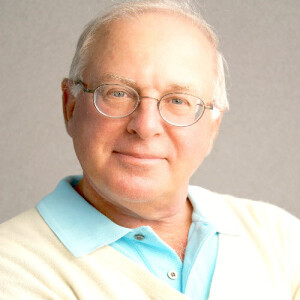
Wednesday Apr 16, 2025
Win With Anger Control; Dr. Mort Orman
Wednesday Apr 16, 2025
Wednesday Apr 16, 2025
Dr. Mort Orman can help you win with anger control. He is a 40-year anger elimination, stress elimination, and emotions mastery expert as well as a Board-Certified internal medicine physician. Dr. Orman has written 23 books on how to eliminate anger, stress, and other unwanted emotions without using drugs, relaxation exercises or other traditional management techniques. He has also been the official sponsor of National Stress Awareness Month every April in the U.S. since 1992. Dr. Orman is the creator of Angry No More, a ten-session quick anger elimination program and Quick Emotions Mastery, a 4-hour online learning program to master anger, guilt, fear, worry, frustration, and sadness. His newest book “Dr. Orman’s Life-Changing Anger Cure” is now available on Amazon. You can learn more about Dr. Orman at his website http://DocOrman.com..
Listen & Subscribe on:
iTunes / Stitcher / Podbean / Overcast / Spotify
Contact Info
- Website: https://DocOrman.com
- Free PDF: The Best Anger Elimination Method You Can Find http://TheAngerSolution.org
- Book: Doctor Orman's Life-Changing Anger Cure
Most Influential Person
Effect on Emotions
-
First, you have to be mindful of the emotion when it rises up in you. So you get triggered and you have to understand what triggered you.
-
You will see patterns and then you will know what is likely to trigger you in the future.
-
Then you have to be mindful about the invisible stuff going on in your head. You have to expand your vision to see the invisible causes inside.
-
Then you have all the puzzle pieces and you can work magic.
Thoughts on Breathing
- Breathing is a great stress and anger management technique. It's good in the short run and it does help.
- Breathing alone does not teach you how to identify those filters. It doesn't help you cure the problem.
- But every time the anger comes up, you can use breathing to give you some short-term benefit.
Suggested Resources
Bullying Story
- Regarding bullying, it depends on the emotion that gets triggered.
- Sometimes it can be shame, guilt or anxiety. Each of those emotions will have their own set of filters so you can literally work through those emotions if they are paralyzing in some way.
- You can learn to understand how your brain is making you feel them. Sometimes there's anger associated with being bullied. Sometimes there's anger in the bully so they are looking through the three filters.
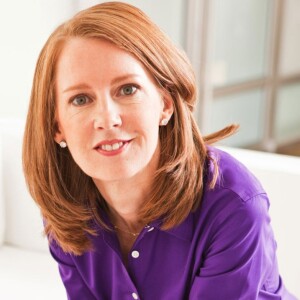
Wednesday Apr 09, 2025
Find Inner Calm; Gretchen Rubin
Wednesday Apr 09, 2025
Wednesday Apr 09, 2025
Gretchen Rubin knows how to bring on inner calm. She is a well-known mindfulness and happiness expert who believes that when we know ourselves and what works for us we can change our habits and our lives. She’s the author of several bestselling books, including Outer Order, Inner Calm: Declutter and Organize to Make More Room for Happiness. Gretchen has the ability to communicate complex thoughts and ideas with humor and clarity.
Listen & Subscribe on:
iTunes / Stitcher / Podbean / Overcast / Spotify
Contact Info
- Website: https://gretchenrubin.com/
- Blog: https://gretchenrubin.com/blog/
- Podcast: Happier Podcast
- Book: Outer Order, Inner Calm
Most Influential Person
Effect on Emotions
- It just makes it easy to control your emotions
- Mindfulness allows you to have that kind of perspective, which then makes for a much more constructive engagement
Thoughts on Breathing
- I just breathe as it naturally happens.
Suggested Resources
- Book: Taste by Barb Stuckey
- Book: Outer Order, Inner Calm
Bullying Story
- I'm very fortunate, I did not have that experience
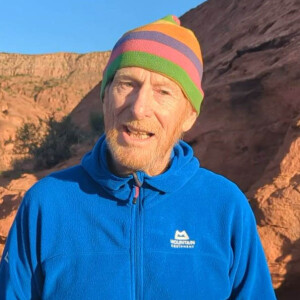
Wednesday Apr 02, 2025
Fearless Explorer Mindset; Martyn Williams
Wednesday Apr 02, 2025
Wednesday Apr 02, 2025
Martyn Williams is an explorer, monk, and passionate mindfulness enthusiast. With 45 years of experience leading extreme expeditions, he has conquered Mt. Everest, navigated the North and South Poles, braved whitewater rapids, and guided meditation retreats across the globe.
A visionary leader, Martyn has spearheaded global youth initiatives that have engaged 65 million young people and inspired them to take action in environmental and humanitarian causes. His groundbreaking journey, Pole to Pole, brought together a diverse team of young adventurers from five continents, covering 35,000 km (25,000 miles) in nine months to spark worldwide awareness and change.
His impact extends beyond exploration—Martyn’s prime-time documentary aired internationally, and as a sought-after speaker, he has captivated audiences of over 100,000 people across all seven continents.
Most recently, he spent seven years as a monk, deeply immersed in studying and teaching yoga and the enlightenment sciences to thousands in India and beyond. Renowned for his bliss, humor, boundless energy, and love of life, Martyn continues to inspire others to push their limits—both externally and within.
Contact Info
- Website: (Wikipedia) Martyn S. Williams
- Youtube Documentary: Fearless (Tavi Films)
Most Influential Person
Effect on Emotions
- Mindfulness has given me the ability to see that I can change my perception. I can perceive it one way, yet there is another way to perceive the same situation.
Thoughts on Breathing
- Breathing is super important. I find that deep breaths into the belly and belly relaxation exercises make a big difference.
- I've also done pranayama, but on the very fundamental level, deep breaths into the body and strong exhales are super powerful in the moment.
Bullying Story
- Somebody came to me for help as a parent. They said that they fell into anger very easily. He said he had a teenage daughter and it was a horrible situation.
- I gave the person some mindfulness exercises and did some work with him. He called me up a couple of weeks later and told me that their daughter had invited a friend over to stay at their house. At 2:00 a.m., the police and the parents arrived because they were missing their daughter.
- When they knocked on the door, the man said his normal reaction would have been to get mad. Instead, he decided not to say anything, but just let his wife handle the situation.
- He watched his wife talking with the police, sorting the problem out. His wife was looking over at him in surprise. He was grateful. His ability to implement was the key aspect of that.
Suggested Resources
- Book: The Autobiography of a Yogi by Pranayama
-
Book: Guaranteed Solutions by Nithyananda
- App: Headspace
Related Episodes
Flow State Secrets; Tim Bui
Grit, Grace, and Innovation; Jeff Standridge
Finding Your Purpose; Dean Graves
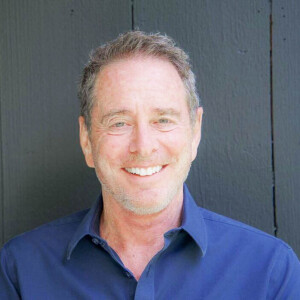
Wednesday Mar 26, 2025
Improve Life With Quantum Physics; Mel Schwartz
Wednesday Mar 26, 2025
Wednesday Mar 26, 2025
Mel Schwartz is a psychotherapist, marriage counselor, and corporate leadership consultant. He is the author of The Art of Intimacy, The Pleasure of Passion, and his newest book, The Possibility Principle: How Quantum Physics Can Improve the Way You Think, Live, and Love. Mel practices in Westport, Connecticut, and Manhattan and works with individuals across the world. Mel is a member of the Society for Consciousness Studies and has been a keynote speaker at Yale University. You can hear Mel on his TEDx talk entitled Overcoming Anxiety.
Contact Info
- Website: www.MelSchwartz.com
- Podcast: The Possibility Podcast With Mel Schwartz - http://melschwartz.com/possibility-podcast
- Blog: A Shift of Mind Blog - http://melschwartz.com/blog/
- TedX Videos: http://melschwartz.com/talks/
- Book: The Possibility Principle: How Quantum Physics Can Improve the Way You Think, Live, and Love by Mel Schwartz
Most Influential Person
- David Bohm, quantum physicist.
Effect on Emotions
- Mind or a thought in motion, (thought and feeling) are inextricably linked. My bias is that thought occurs first, although we may not see it, or be aware of it.
- So I have learned that when I'm in a particular mood, whether elevated or deflated, if I check in as to what the last thought I had, I can find the thought that set up the feeling.
- Now the thing is, once you have the feeling, that feeling then will summon up more similar thoughts, which is why we tend to cycle up or down.
- But there are different words and labels that we put to describe human experience. So we think of thought being from the neck up.
Thoughts on Breathing
- Breathing is not sufficiently part of my mindful practices. It's something I need to work on. I tend to reside in my spirit and in my mind.
- My work is to develop more awareness in my body and to be more conscious and mindful of my breathing. So to the point of embracing vulnerability and sharing your truth. That's work I still need to do
Suggested Resources
- Book: Read Alfred North Whitehead, the philosopher, 19th century. Also read author, David Bohm.
- Book: The Possibility Principle: How Quantum Physics Can Improve the Way You Think, Live, and Love by Mel Schwartz
- App: Spotify
Bullying Story
- Bullying, especially emotional and verbal, often stems from deeper issues of self-worth.
- In therapy, cases arise where individuals, including men in marriages, tolerate bullying due to low self-esteem. The key question is: Why do I endure this? It ties back to personal narratives formed in childhood—fear of judgment, shame, or disappointing others.
- True self-esteem isn’t about external validation but embracing vulnerability and authenticity.
- Many mistake "acting strong" for strength, but real confidence comes from self-acceptance. Seeking approval excessively weakens one's core identity, making them more susceptible to manipulation and bullying.
Related Episodes
Laws For Quantum Success With Christy Whitman
NLP For Body and Mind Transformation; Beth Sutherland
Empowering Minds, Achieving Success; Janet Elaine Schmidt
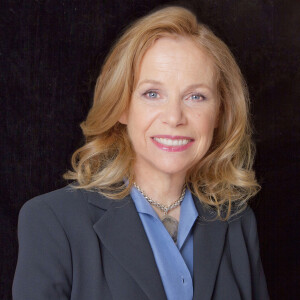
Thursday Mar 20, 2025
Be Up In Down Times; Mitzi Perdue
Thursday Mar 20, 2025
Thursday Mar 20, 2025
Mitzi Perdue, along with Mark Victor Hansen, is the co-author of How to Be Up in Down Times. She is a health and science writer with an honors BA from Harvard and an MPA from George Washington University. Mitzi combines the experiences of three long-time family businesses. Mitzi founded CERES Farms and also WIN THIS FIGHT, STOP HUMAN TRAFFICKING.
Listen & Subscribe on:
iTunes / Stitcher / Podbean / Overcast / Spotify
Contact Info
- Website: www.MitziPerdue.com
- Book: How to Be Up in Down Times, by Mitzi Perdue Mark Victor Hansen and Preston Weekes
Most Influential Person
- Mother Theresa
Effect on Emotions
- I've loved the idea of controlling emotions. Some you can't. If you have a child who's ill, I don't know what to do about that. But of ordinary garden variety things, I think it's a question of whether I will let that get to me. Then, the answer is no.
Thoughts on Breathing
- Breathing I consider so important that I've been taking lessons with a voice coach about deep breathing.
- If you can take a deep breath when things are tough, it takes away tension.
- My breath is purple in my imagination.
Suggested Resources
Bullying Story
- I have had many jobs during my lifetime that were dominated by men. You can imagine that a lot of bullying came my way, so how did I handle it? Here's where it gets a little bit off-beat.
- If you criticized me in some way, and it's going to make me better, I embrace it, I love it, and I'll act on it.
- If you're bullying me or if you're being critical because you think you can get away with it, you don't exist for me. I'm not going to let you get under my skin.
Related Episodes
- Personal Development for Success; Thais Gibson
- 418 Mind-Body Healing Using The Vibrational UPgrade System; Alison J. Kay
- 166 Create a Nurturing, Mindful Space With Million Dollar Decorating Host James Swan
Support Our Sponsor
| Are you a healer, coach or mentor? Use hypnosis in your practice to help others stop struggling with their deep-rooted issues with mindset or fears. Would you like to have new skills to help your clients? Hypnosis can help people reach goals faster and easier than you thought possible. Become a hypnotherapist. The Cascade Hypnosis Center offers world-class training. www.CascadeHypnosisCenter.com |
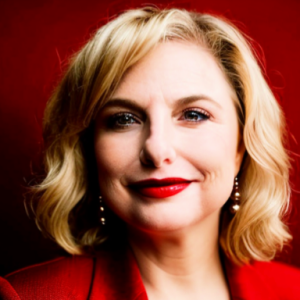
Wednesday Mar 12, 2025
Dialectical Behavior Therapy; Dr. Laurie Bruce
Wednesday Mar 12, 2025
Wednesday Mar 12, 2025
Dr. Laurie Bruce uses Dialectical Behavior Therapy (DBT) to help people learn to manage their emotions and let go of anxiety and trauma issues. Dr. Bruce has provided psychotherapy, consultation and supervision to thousands of clients and students. She is certified in DBT and Psychedelic Assisted Psychotherapy. Dr. Bruce is the host of the podcast, From Both Sides of the Couch, where she shares the current research on mental health and psychotherapy, from her perspective as both a psychologist and a client in her own psychotherapy. She is passionate about mindfulness, emotion regulation, resilience, radical acceptance and vulnerability.
Listen & Subscribe on: iTunes / Stitcher / Podbean / Overcast / Spotify
Contact Info
- Website: www.DrLaurieBruce.com
- Podcast: From Both Sides of the Couch
Most Influential Person
- My two kids
Effect on Emotions
- I can't change what I'm not aware of, so the very first step is to be more aware of how I feel emotions in my body. Typically one of the corresponding thoughts that I have with certain emotions, I feel anger in my chest or my stomach and usually a corresponding thought is that's not fair. Being able to identify how it feels in my with what the words are going through my head, with what the name of that emotion is, that helps me to regulate it and it helps me to change it if that's an emotion I want to change.
Book: The mindful way through depression.App: calm and insight timer.
Thoughts on Breathing
-
BreathingWe teach breathing both in the mindfulness component of just observing our breath is a great mindfulness exercise. We also teach breathing as a tool To help decrease distress. When were very upset, which in DBT we call emotion mind, breathing can be a tool to bring down the intensity of any emotion.
Bullying Story
- I was bullied during my early childhood. I attribute my bullying experiences as part of the reason that I became a clinical psychologist.
- I struggled with depression and anxiety and low self-worth. Becoming a clinical psychologist was about me trying to alleviate that pain that stemmed from my childhood bullying.
- When I started learning about DBT, back in the mid '90s, I recognized that I was learning important skills for the very first time.
- I believe we should teach DBT in schools so that kids feel more empowered. That would help them regulate their emotions and their distress and learn how to be present.
Suggested Resources
- Book: The Mindful Way Through Depression by Mark Williams and John Teasdale
- App: Calm and Insight Timer
Related Episodes
Physiotherapy With Positive Mindset; Aleksandra Nenadic
Heal Faster With Mindfulness and Electromagnetic Field Therapy; Dr. William Pawluk
The Ambassador of Happiness, Maura Sweeney
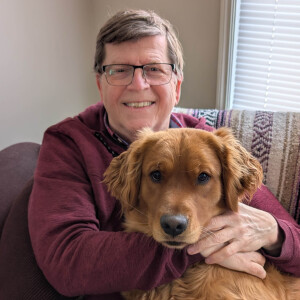
Thursday Mar 06, 2025
Mental Detox With Dog Therapy; Bruce Langford
Thursday Mar 06, 2025
Thursday Mar 06, 2025
Do you ever feel like you could use a mental detox? Yeah, me too. I meditate every day. I practice mindfulness. I do a walking meditation every day. And still, the idea of a mental detox sounds appealing to me. Now, I have the perfect way to achieve this. About a week ago an amazing thing happened. My wife connected with a friend who was looking for a home for a 2-year-old puppy. Long story short, Lucy, the Golden Retriever is now the newest part of our family. The previous owner died and his niece was looking for a home where she would be loved, cared for and truly appreciated. That describes our home.
You might remember that I’ve talked about our previous pets before, but our three pets passed away, one by one, so for the last 3 years, we have been without a pet.
Dogs can be incredible companions on the journey to mindfulness and mental well-being. I’ve called today’s episode, Mental Detox With Dog Therapy, because that’s exactly what a dog can bring you - a mental detox. Depending on the dog, of course.
Here are 7 ways I believe Lucy can help me become more grounded, more mindful, and even experience a mental detox:
1. Living in the Present Moment
Dogs naturally live in the "now." Their focus on what’s happening in the present—whether it’s a walk, a meal, or a belly rub—can remind you to slow down and savor each moment instead of worrying about the past or future. Lucy is spending every moment getting used to the idea that our home is her home.
2. Sensory Awareness
Walking a dog encourages you to engage your senses. You notice the breeze, the scent of grass, or the warmth of the sun—helping you become more connected to your environment and fostering mindfulness through sensory grounding. I’ve been doing daily walks for 6 or 7 years at least, and now I’m not walking alone. Lucy is right there by my side.
3. Unconditional Love and Acceptance
Lucy’s non-judgmental presence fosters mindfulness and even emotional healing. Her love and acceptance gives me a safe emotional space to let go of negative thoughts and cultivate self-compassion. One of my mantras is, I see God in every one and every thing, with compassion. I know that most dogs offer a non-judgmental form of compassion. It’s certainly built-in to Lucy’s DNA.
4. Routine and Stability
Caring for Lucy requires daily structure—walks, feeding times, play— that helps ground me in a healthy rhythm. This routine promotes consistency, reducing mental clutter and promoting mental detox.
5. Movement and Physical Connection
Physical activity like playing or walking with a dog releases endorphins and reduces stress. Movement shifts my focus away from mental noise and into my body, fostering a sense of calm and clarity. That’s one of the reasons it feels good to walk Lucy every day.
6. Emotional Regulation and Stress Relief
Petting a dog can lower cortisol levels, that’s the stress hormone. It can also increase oxytocin (the "love hormone"). This physical connection helps regulate emotions and promotes a state of mental ease.
7. Joy and Playfulness
Lucy has already brought spontaneous moments of joy and laughter. Her playful nature lifts my spirits, disrupts overthinking, and invites a light-hearted perspective—a powerful form of mental detox.
Here are 7 mindful activities you can enjoy with your dog to deepen your connection, stay present, and experience a mental reset:
1. Mindful Mealtime
- How to do it: Before feeding your dog, pause and take a few deep breaths. As you prepare their food, focus on the textures, smells, and your dog’s excitement.
- Mindful twist: Encourage your dog to “sit” or “stay” before eating. Observe their anticipation and offer the meal with gratitude, reflecting on how caring for them nourishes both of you.
🐾 2. Intention-Setting for Training
- How to do it: Before each training session, set a simple intention—patience, joy, or connection. Approach training as a shared experience rather than a task.
- Mindful twist: Stay present by focusing on your dog’s body language and energy. Celebrate small wins without judgment if progress is slow.
🐾 3. Mindful Commands Practice
- How to do it: When practicing basic commands (like “sit,” “stay,” or “come”), deliver cues with calm, intentional energy. Pay attention to your voice tone and body language.
- Mindful twist: After each successful command, pause and share a moment of eye contact. This simple act deepens connection and mutual awareness.
🐾 4. Slow, Mindful Walks
- How to do it: Allow your dog to set a relaxed pace during walks. Observe their curiosity—how they stop to sniff or listen.
- Mindful twist: Match your breath to your steps and notice the details around you. Use these walks as an opportunity to ground yourself while sharing exploration with your dog.
🐾 5. Conscious Touch & Massage
- How to do it: After a busy day, offer your dog a gentle massage or soothing touch. Focus on the warmth of their body and the softness of their fur.
- Mindful twist: Use this time to scan your dog’s body for tension while also checking in with your own emotions—let the rhythm of touch calm both of you.
🐾 6. Mindful Pause & Play
- How to do it: During playtime, engage fully—notice the energy of your dog’s movements and the feel of the toy in your hand.
- Mindful twist: Occasionally pause during play and take a breath together. This practice encourages self-regulation and deepens awareness in both of you.
🐾 7. Evening Wind-Down Ritual
- How to do it: At the end of the day, spend a few quiet minutes with your dog in a calm setting. Let go of the day’s stress as you sit together.
- Mindful twist: Reflect silently on moments of joy your dog brought that day. This practice fosters gratitude while easing both of you into restfulness.
I hope you’ve enjoyed this episode, Mindful Tribe. Thanks for listening.
Related Episodes:
Learn from Ultimate Pet Health Guide Author, Dr. Gary Richter (Aug 21, 2017)
The Healing Power Of Dogs; Heather Leigh Strom Nov 16, 2023
How Your Dog Can Improve Your Leadership Skills Explains Dr. Ann Gatty Mar 23, 2017

Wednesday Feb 26, 2025
AI For Mindfulness; Dr. Joan Palmiter Bajorek
Wednesday Feb 26, 2025
Wednesday Feb 26, 2025
Dr. Joan Palmiter Bajorek has a career in AI, and we discuss AI For Mindfulness and other purposes. Joan is a serial entrepreneur, AI leader, investor, podcast host, and the CEO of Clarity AI. She lost her job during two large AI layoffs. 50% of Americans are experiencing layoff anxiety, according to Harvard Business Review. Joan has a new book called Your AI Roadmap: Actions to Expand Your Career, Money, and Joy.” The book prepares readers to future-proof their careers and finances. It contains practical templates, research, data, stories, and highlights, including goal setting, personal branding, modern networking, personal finances 101, and steps to build wealth towards financial freedom.
Contact Info
- Website: www.yourairoadmap.com
- Book: Your AI Roadmap: Actions To Expand Your Career, Money, and Joy by Joan Palmiter Bajorek
Most Influential Person
- My Mom
Effect on Emotions
- Mindfulness helps ground me. I'm an extrovert with a lot of energy and sometimes being too close to reactivity is something I struggle with.
- When I get outside with my feet in the grass, I can be closer to my best self.
Thoughts on Breathing
- I work on long exhales. When I become present to my breath I really noticed that the duration of my exhales can change.
- Even 30 seconds of doing those long exhales can be very beneficial.
Bullying Story
- Being a woman online, especially after my listener count grows, I experience some unpleasant behavior. I don't know if I would call it bullying.
- I've had two stalkers, which has really not been fun. We have content moderation on some platforms these days. I have a policy called document, mute, and block. On most platforms they don't even know that you've blocked them.
Suggested Resources
- Book: Financial Feminist by Tori Dunlap
- Book: Your AI Roadmap: Actions To Expand Your Career, Money, and Joy by Joan Palmiter Bajorek
- App: Perplexity
Related Episodes
Staying Mindful In A World Of Technology With Robert Plotkin
Mindfulness In A World Of Tech; William A. Adams
Escaping Slavery To Modern Technology with Sean Morgan
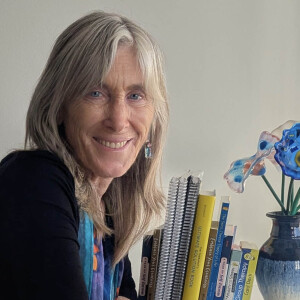
Wednesday Feb 19, 2025
Therapeutic TIPS For Healthier Thinking; Judith Belmont
Wednesday Feb 19, 2025
Wednesday Feb 19, 2025
Judith Belmont can help you by providing therapeutic tips for healthier thinking. As the author of 11 mental health books and two therapeutic card decks, she equips counseling professionals, therapy clients, and self-help readers with practical tools for emotional well-being. Her work addresses common challenges such as low self-esteem, depression, anxiety, and relationship issues. Her latest book, 110 TIPS and Tools for the CBT Toolbox, was released in January 2025 as part of her TIPS series with PESI, which includes 150 More Group Therapy Activities and TIPS and 86 TIPS for the Therapeutic Toolbox. Through worksheets, handouts, activities, and visualizations, she helps individuals improve communication, resilience, and mindfulness. Her approach is rooted in CBT, DBT, ACT, and Positive Psychology, making mental health strategies accessible and effective.
Listen & Subscribe on: iTunes / Stitcher / Podbean / Overcast / Spotify
Contact Info
- Website: www.BelmontWellness.com
- Book: 110 CBT TIPS and Tools by Judith Belmont
Most Influential Person
- My Husband
Effect on Emotions
-
Mindfulness is extremely important to help me not look back or too far ahead. It has really been life-changing just to have gratitude in the moment.
-
People who are not grateful tend to count their disappointments more than their blessings. They are generally not happy people.
Thoughts on Breathing
- I find that when people get anxious about something, they have more shallow breathing. Sometimes I have to remind myself to take a deep breath.
- What I have done with my clients and with myself sometimes is just to imagine as you breathe in, that an energy and life force goes through your whole body. I imagine it being a color. The color goes through the extremities.
- Then you breathe out and the color goes out to the air. That visual exercise helps me with my breathing.
Bullying Story
- I was doing a webinar on communication skills in the workplace. I told the people in the webinar that assertive communication is using "I" statements. For example, I think, I feel, it's important to me.
- Aggressive communication is "you" statements. For example, you shouldn't be doing that and blaming. Also being not assertive is keeping things in. Then I did a role-play. I then did a survey of the listeners and everybody got it wrong.
- They did not realize that all the "you" statements were bullying behavior. Almost everybody identified it as assertive.
Suggested Resources
- Book: The Feeling Good Handbook by David Burns
- Book: 110 CBT TIPS and Tools by Judith Belmont
- App: n/a

